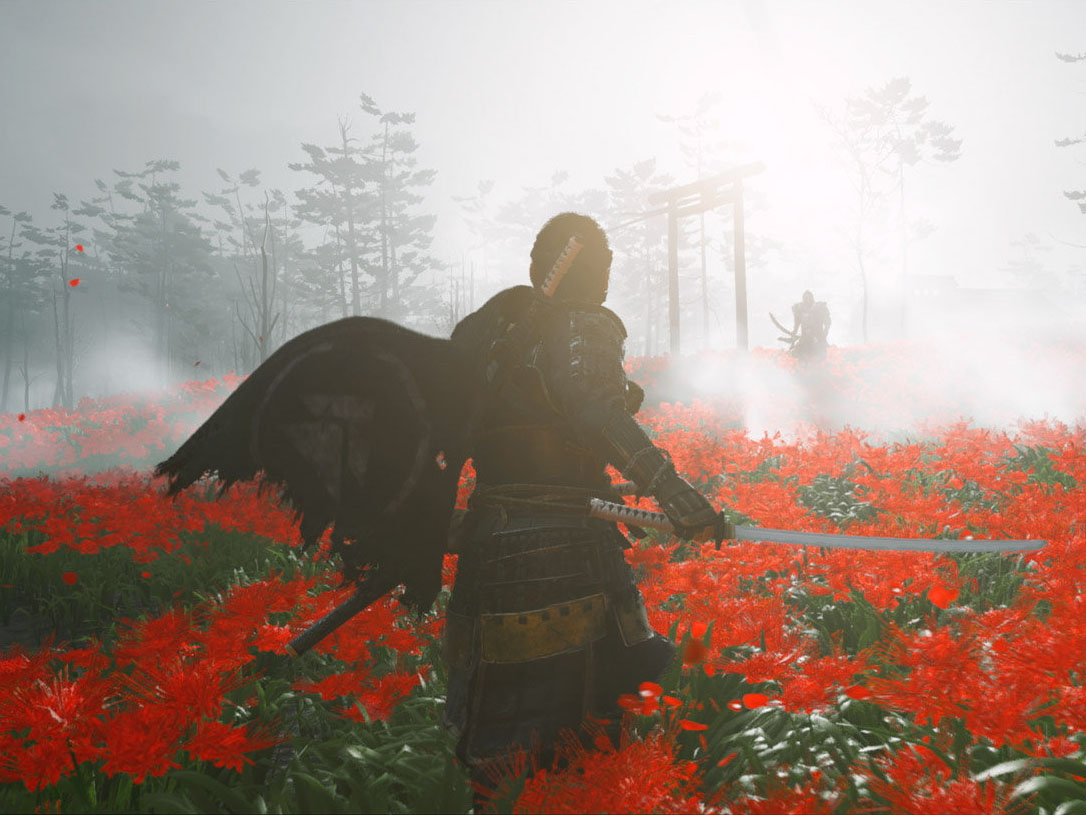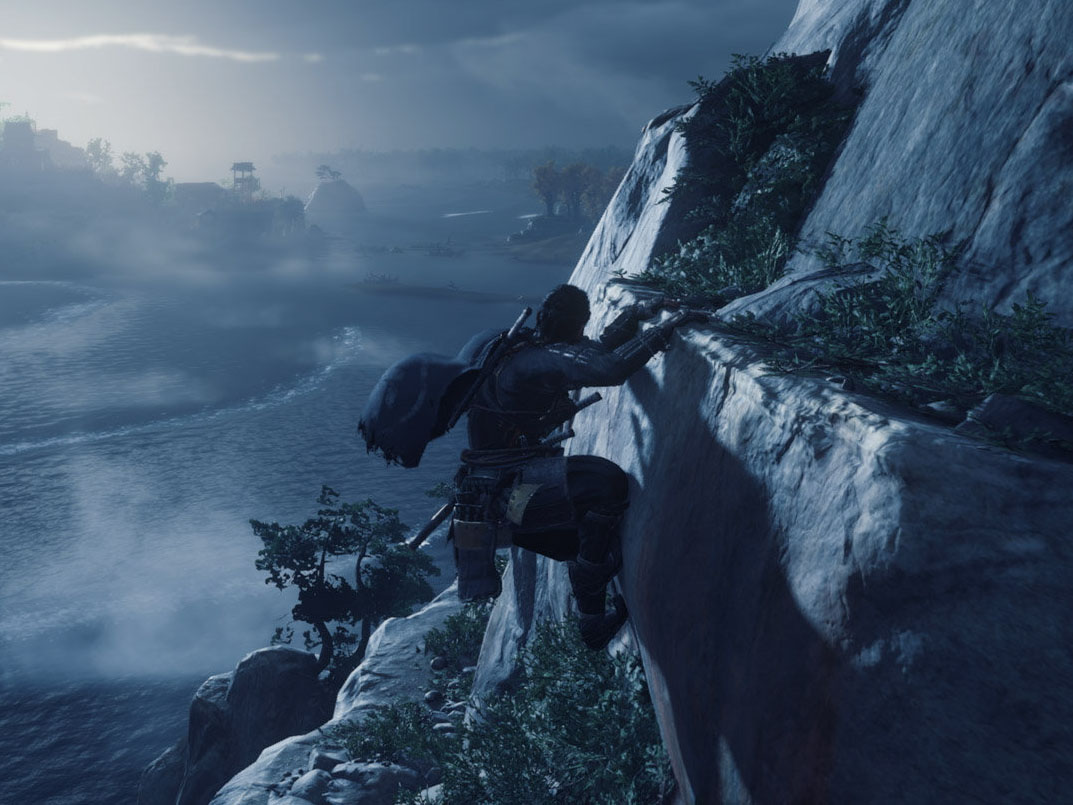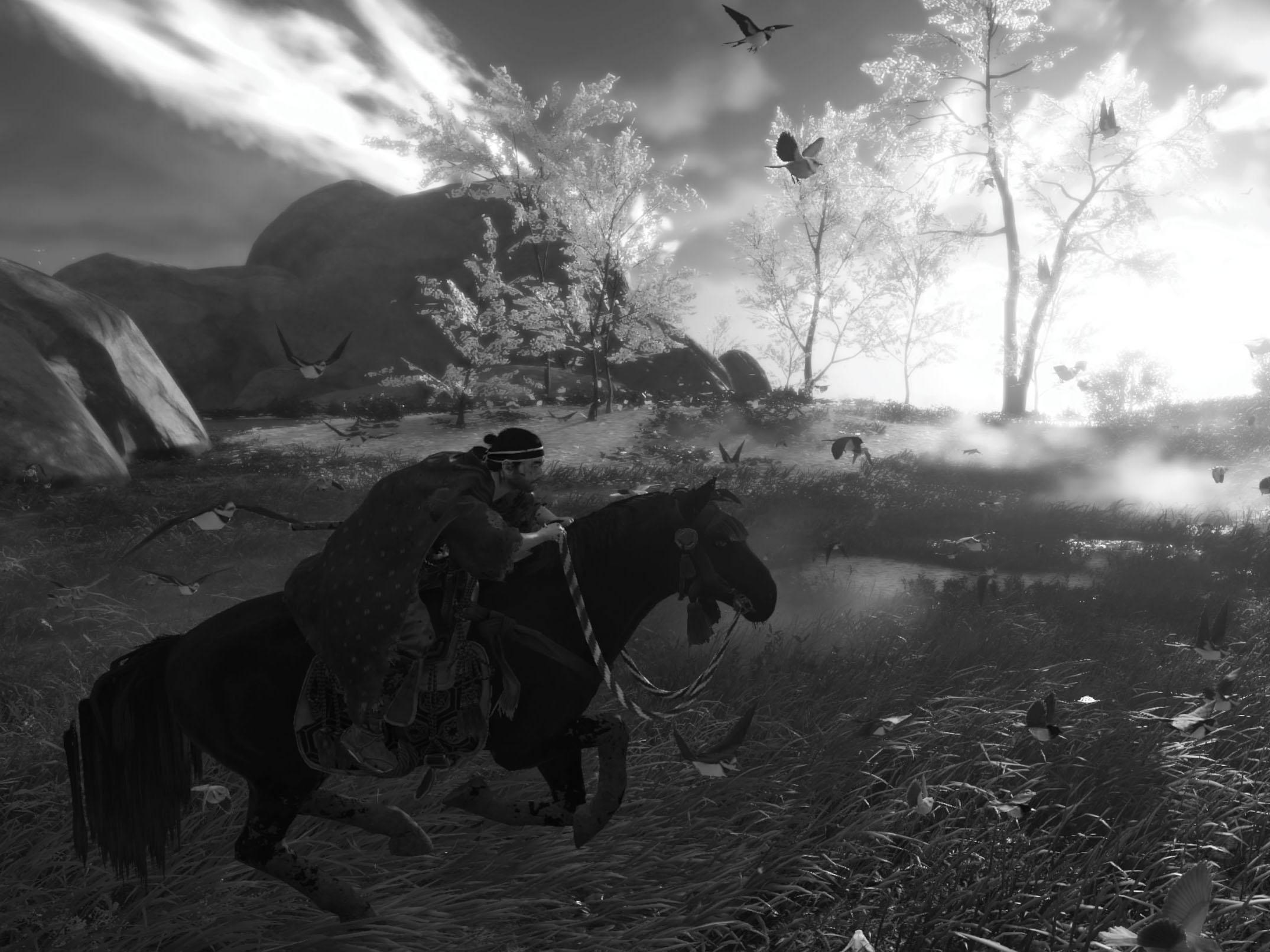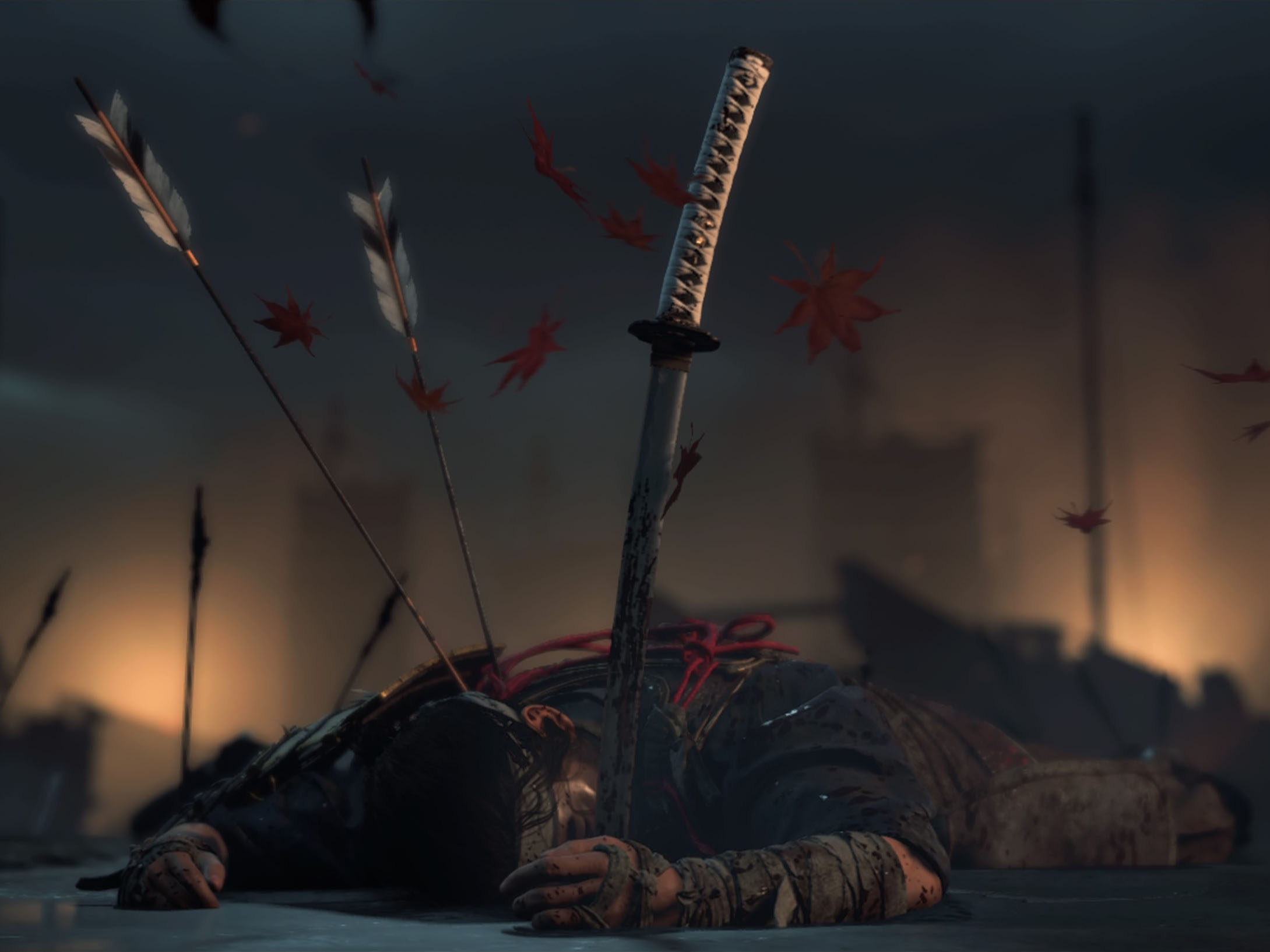Ghost of Tsushima review
The phantom menace

Ghost of Tsushima arrives at an opportune time just as games are having a bit of a samurai renaissance, as demonstrated by Nioh and Sekiro: Shadows Die Twice.
It also has the pressure of being Sony’s final first-party blockbuster on PS4. Can inFAMOUS developer Sucker Punch give this generation the fitting swansong it deserves?
There’s certainly a lot to like about this Japan-set epic, especially for Japanophiles and cinephiles, yet the results often feel like a derivative shadow of other games that have come before it.
Sayonara Samurai

The game takes place in the 13th century, as the Mongol Empire invades the Japanese island of Tsushima, slaughtering samurai in its wake and enslaving its people. You play as Jin Sakai, one of the last surviving samurai who embarks on a campaign to reclaim the land from both invaders and traitors while rallying survivors and allies to your cause.
All which is a great opportunity to marvel at Tsushima’s stunning presentation, which of course includes photo mode but even here you can opt to have the scenery still animating so that cloaks billow and leaves blow in the wind. PS4 Pro users also have the option to prioritise performance for a sharper dynamic 4K resolution or a smoother unlocked framerate.
There’s a real sense of authenticity in the attention to detail and respect to Japanese tradition and culture, including the option to play the game with a full Japanese voice track. Throughout your journey, you’ll learn bits of folklore, compose haikus, follow torii gates leading to shrines, even bathe in hot springs to improve your health.
The central theme however is the honour of a samurai, like facing your enemy head-on – principles the ruthless Khotun Khan flies in the face of. It’s a conflict that parallels that of a Japan-themed game made by a big budget studio in the West. The more Jin progresses in his journey to liberate Tsushima from the Mongols, the more he sacrifices the samurai’s code and embraces an assassin’s creed. Ahem.
Ghosts of Gaming Past

Pun aside, Tsushima does often feel like a lost entry from Ubisoft’s open world stealth series, albeit one from the beginning of the previous decade. It even has its own version of towers, for crying out loud.
It does try to remove the usual open world clutter by having an unsubtle wind guide you to your objective instead of waypoints, while speaking to people might alert you to points of interest that appear on the world map. But it’s an indecisive approach, where sometimes the lack of navigation has you running around lost, while in another instance the wind blows aggressively against you when you deviate just slightly off course.
Between the main objective, you’ll discover secrets, liberate villages, and more interestingly help allies in their own tales, many which run in parallel to the campaign. Yet the missions themselves are rigidly linear in design.
This is most apparent when you’re surveying an enemy encampment, which initially seems like it’s going to give you multiple options only for it to fall to one set solution. Traversal feels straight out of an Uncharted game, where climbing cliffs or using a grapple hook have obvious prescribed paths – hardly what you’d expect in an open world game.
Worse are the hackneyed stealth mechanics, which you’ll find yourself using just to alleviate from overwhelming combat situations. Yet even though you’re supposed to be able to mix up samurai and ghost playstyles, you’re also frequently forced into stealth situations with insta-fail penalties. And in the year of our Lord 2020, why are there still tailing missions?
Steel yourself

For players put off by the masochistic difficulty of Nioh or Sekiro, the good news is that combat is on the more forgiving side, where kills and parries are rewarded with resolve gauges that can be spent on healing or special attacks. It’s at its best when you’re fighting in one-on-one duels set to an epic backdrop, or when challenging your first enemy to a Stand-off with the same tension of a showdown in a Western.
But these are also just a fraction of your encounters since most of Tsushima‘s combat involves taking on mobs that are in turn messy and an irritating exercise in attrition. There are interesting ideas such as learning to use different stances against specific enemy types, but you’ll also have to fight against the absence of a manual targeting system and a wayward camera more interested in spectacle than function.
The fundamental problem with Tsushima can be best summed up by its Kurosawa mode. Choosing this setting lets you play the game like a classic black-and-white samurai movie (even if I must argue that Kurosawa’s greatest masterpiece is Ran, which was shot in colour), which looks terrific until you find yourself lost among the crowd or fail to read the signals to dodge or parry, which appear as coloured glints on an enemy’s weapon. For all of the game’s sense of scale and cinematic sweep, these are superficial aesthetics that come at the expense of gameplay.
Ghost of Tsushima Verdict

For a game that’s supposed to close out a console generation, Ghost of Tsushima is frustratingly old-fashioned in its design.
It looks every bit the stunningly cinematic samurai epic and there’s plently of slashy enjoyment to be had here, but it’s constantly hampered by little faults that chip away at and dull its blade.
Stuff Says…
A decent samurai tale but without the compelling gameplay to back it up
Good Stuff
Looks and sounds gorgeous (especially in photo mode)
Great attention and respect to Japanese traditions and culture
Epic one-on-one samurai duels
Bad Stuff
Dated and generic open world and stealth design
Frustratingly linear in places
Messy and annoying mob combat



